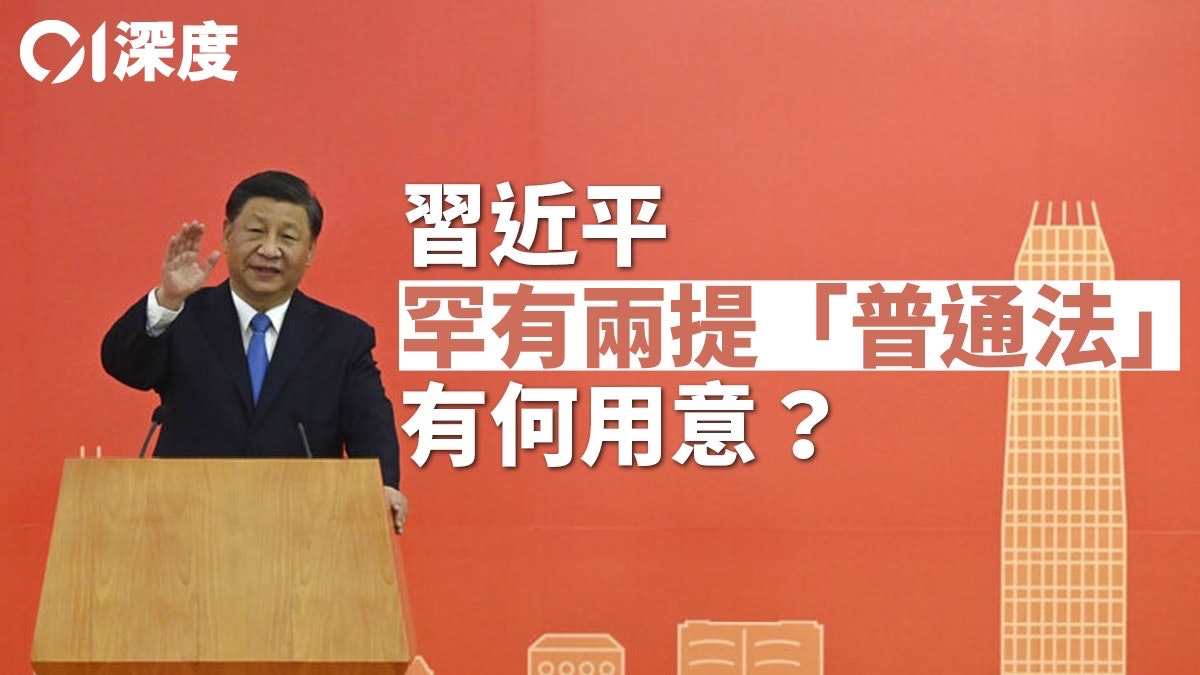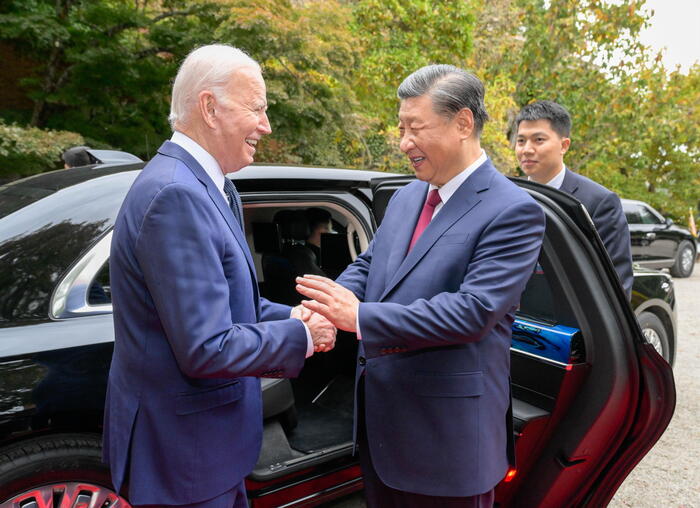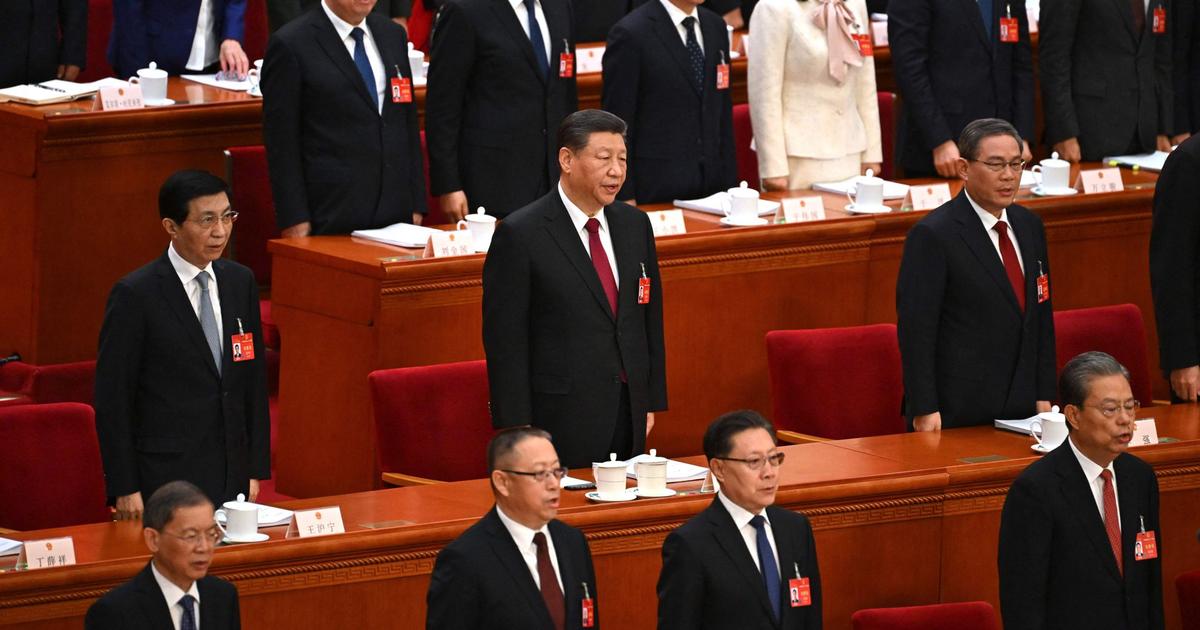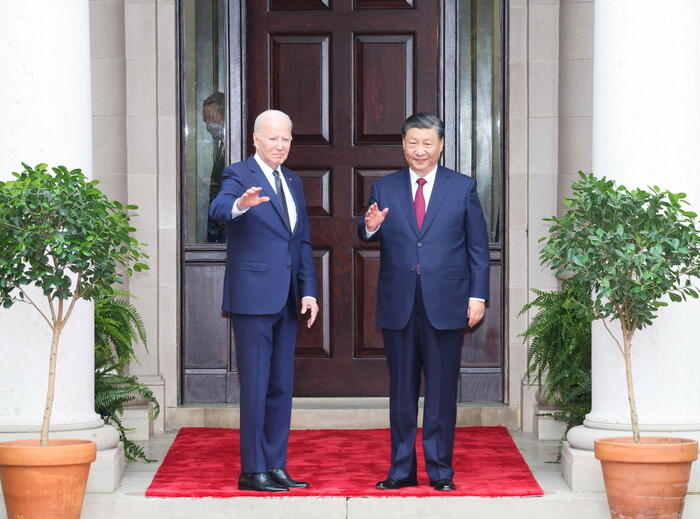When President Xi Jinping came to Hong Kong at the beginning of the month to attend the inauguration ceremony of the sixth-term SAR government, he summed up the "four musts" for the practice of "One Country, Two Systems". .
Xi Jinping rarely talks about the common law of Hong Kong, which is regarded as a guarantee to continue the advantages of the rule of law in Hong Kong; however, in the past 25 years since the handover, based on the understanding of the rule of law and differences in the legal system between the mainland and Hong Kong, many disputes have indeed arisen. For example, Hong Kong, which uses the common law, believes that "The rule of law" should reflect "limiting power by law", while the mainland, which follows the socialist legal system (also known as "Continental Law"), regards the "rule of law" as a "governance tool".
Hong Kong is at the intersection of two legal systems, and the Basic Law is also regarded as the link between the two legal systems. In the second half of the "fifty years unchanged", we must have an attitude of mutual respect, tolerance and understanding to avoid More unnecessary conflicts.
There have been legal disputes before and after the handover
In 1984, former state leader Deng Xiaoping explained the concept of "one country, two systems" to a delegation from the Hong Kong business community to Beijing and others, and specifically mentioned that "basically unchanged laws" belong to China's "fifty years of unchanged" policy toward Hong Kong.
This was later written into Article 3 of the Sino-British Joint Declaration signed in the same year, that is, China and the United Kingdom agreed that "the existing laws of Hong Kong will remain basically unchanged".
Article 8 of the Basic Law promulgated in 1990 more specifically stipulates that "the laws originally existing in Hong Kong, namely the common law, the laws of equity, ordinances, subsidiary legislation and customary law, shall, unless they conflict with this Law or have been amended by the legislature of the Hong Kong Special Administrative Region. Other than that, keep it." Today, halfway through the "fifty years unchanged", Hong Kong laws have undoubtedly undergone many changes, and during this period, there have also been many disputes over the Basic Law and the laws of the SAR.
Such disputes have arisen long before Hong Kong's actual handover.
Although the drafting process of the Basic Law involves many conflicts of legal viewpoints, at least it has produced a text that is acceptable to all parties. China and the UK have also agreed to allow the Legislative Council under colonial rule to transfer directly to the Legislative Council through a "through train" arrangement. Form the Legislative Council of the District.
However, in 1992, Hong Kong Governor Chris Patten promoted constitutional reforms such as the single-seat single-vote system for regional direct elections in the Legislative Council and the "New Nine Groups" for functional constituencies, which led China to decide to "start anew" and appoint a provisional Legislative Council as an alternative.
As a result, the last Legislative Council elected in 1995 could not transition smoothly according to the original "through train" arrangement, and many local laws passed during its two-year term were overturned by the Provisional Legislative Council immediately after its return.
The establishment of the Provisional Legislative Council was compelled by the times, so its legal basis was questioned from time to time before and after the handover.
Ironically, the SAR Court later affirmed the legal status of the Provisional Legislative Council, but led to another bigger controversy.
It was because the Sino-British Joint Declaration and the Basic Law originally defined Hong Kong permanent residents too broadly. The SAR Government proposed to the Provisional Legislative Council to amend the Immigration Ordinance less than ten days after the handover to close the loophole. Unexpectedly, the affected families The application for judicial review also questioned the legitimacy of the Provisional Legislative Council as the SAR legislature.
In 1999, the Court of Final Appeal ruled that the Provisional Legislative Council was in line with the Basic Law, but at the same time recognized that children born to Hong Kong people in the Mainland had the right to reside in Hong Kong even if they came to Hong Kong illegally, and argued that the court had reviewed the actions of the National People's Congress and its Standing Committee. The power to comply with the Basic Law or not.
Whether at the legal or other level, the "two systems" in "one country, two systems" definitely requires positive interaction and collaboration.
(Photo by Luo Junhao)
Naturally, the central government and the Hong Kong government could not accept the court's opinion. The State Council requested the NPC Standing Committee to interpret the relevant provisions of the Basic Law in response to the report of the then Chief Executive Tung Chee-hwa, and sought to overturn the final court ruling to avoid serious pressure on Hong Kong society. People's Congress Interpretation".
Since then, the Hong Kong courts have generally followed the content of the "People's Congress Interpretation" when hearing other related cases, and have recognized that the NPC Standing Committee's power to interpret laws is different from the common law system where the courts interpret laws.
However, the fact that the SAR government can request the interpretation of the law through the State Council has not been found in the Basic Law, and it is even based on mainland regulations. The incident will inevitably cause some Hong Kong people to question and undermine the "one country, two systems" principle, laying the groundwork for more similar disputes in the future.
Major disputes mostly have political background
At the beginning of the return, Hong Kong people, including those in the legal and political circles, had relatively little understanding of Chinese laws, which made it very easy for related issues to become politically charged.
The most symbolic example is Article 23 of the Basic Law, which clearly states that the SAR should enact legislation to prohibit various crimes endangering national security.
In 2003, the Hong Kong government proposed a bill for this purpose, although it did not actually want to introduce mainland criminal law into Hong Kong as some critics criticized at that time, but the process of promoting the legislation was immediately after the dispute over the right of abode in Hong Kong and the first "people's congress released the law". , the public still has an unknown fear of the mainland's legal system, coupled with the lack of consultation and explanation by the authorities, and the "SARS" epidemic in the same year, and the scandal of officials responsible for intensifying public dissatisfaction, the final bill is almost unknown. Hundreds of thousands of people came out to demonstrate against it.
Legislation was forced to shelve and remains unfinished to this day.
Together with the opposition to the legislation of Article 23 of the Basic Law, there is also a bid for the 2007 Chief Executive and the 2008 Legislative Council to be elected by universal suffrage.
Because the goals and methods of universal suffrage for both are stipulated in the Basic Law, this issue is also a legal dispute.
In April 2004, the Standing Committee of the National People's Congress took the initiative to issue the second "People's Congress Interpretation", which clearly stipulated the "five-step" procedures for the constitutional reform of the Hong Kong Special Administrative Region. There will be no universal suffrage in 2008.
Similar to the period of disputes over the right of abode in Hong Kong, the NPC Standing Committee's initiative to interpret the law, which is not recorded in the Basic Law, has caused some Hong Kong people to be confused. In-depth understanding of the Mainland legal rationale and logic behind it.
The discussion on constitutional reform continued for a long time. In 2010, the 2012 election method was made progress under the consultation of all parties. In 2014, the Standing Committee of the National People's Congress also decided that Hong Kong can implement universal suffrage for the Chief Executive after 2017. However, when it designed the nomination committee required by the provisions of the Basic Law, it completely referred to the existing Election Committee mechanism, so it was regarded by the opponents as "dropping the brakes", which triggered the extremely large-scale mass movement that year.
It can be seen that, affected by the nature of the issues and the social environment, legal issues in Hong Kong are often politicized, and Hong Kong people's lack of knowledge or distrust of the mainland's legal system further exacerbates conflicts and disputes.
The more recent dispute over the "co-location" at the West Kowloon Station of the Guangzhou-Shenzhen-Hong Kong Express Rail Link and the campaign against the "Fugitive Offenders Bill Amendment Bill" are ultimately similar in nature.
Cooperation between the two systems requires mutual trust
Of course, it must be pointed out that not all disputes of the same kind come from the Hong Kong side.
For example, in 2016, when a member of the Legislative Council was not accepted when he took the oath of office, the Department of Justice filed a judicial review with the High Court on the power of the Legislative Council President to allow them to re-swear an oath. , basically prompting the court to rule in favor of the Hong Kong government.
Another example is that in 2019, the High Court ruled that some provisions of the Emergency Regulations Regulations did not conform to the Basic Law. The Standing Committee of the National People's Congress makes judgments and decisions."
The above two events have caused quite a stir in the Hong Kong legal profession, and more or less reflect the central government's distrust of the Hong Kong courts.
Since the handover, there have been many legal disputes, and quite a few of the provisions of the Basic Law of Zhaoyuan are not clear and detailed enough.
(Photo by Zheng Jianfeng)
Whether at the legal or other level, the "two systems" in "one country, two systems" definitely requires positive interaction and cooperation, and it is not without such cases in the 25 years since China returned to China.
In 2008, the Democratic Republic of Congo was about to collect an access fee, and its creditors filed a petition to use the money to offset it. Congo filed a claim for immunity from prosecution based on "state immunity".
The key to the case is whether Hong Kong adopts "absolute immunity" or "restricted immunity" after the handover. The Court of Appeal of the High Court ruled that Congo lost the case based on "restricted immunity". It was not until 2011 that the Court of Final Appeal submitted to the Standing Committee of the National People's Congress for interpretation of the law that China and Hong Kong were "restricted immunity". Absolute immunity," successfully resolving a complex legal issue, which was described by former Secretary of Justice Wong Yan-lung as "the central government and the SAR, including the Court of Final Appeal...reflecting the spirit of loyalty to the Basic Law and the rule of law".
President Xi Jinping's visit to Hong Kong a few days ago quoted "Xunzi.
"Study the Body"'s "do not stop, the future can be expected", and later said that "one country, two systems" must be "persistent for a long time" and the central government supports Hong Kong "maintaining the common law system". More than "fifty years unchanged", but if the two disparate legal systems under "one country, two systems" are to function healthily, it is obviously necessary for both sides to strengthen mutual understanding, understanding and trust, and to respect each other's differences.
On the other hand, there have been many legal disputes since the handover, and quite a few of the provisions of the Basic Law of Zhaoyuan are not clear enough. If we do not stop”, I am afraid that “the law will remain basically unchanged” cannot be rigidly understood as keeping the text of the Basic Law unchanged, but we need to start thinking about how to fix the gaps in it.
Xi Jinping's July 1 speech | Why does the sword point to the reform of "special zone governance"?
Xi Jinping's July 1 speech | Li Jiachao's government must "focus on improving governance" Xi Jinping's July 1 speech | Is Han Zheng coming to Hong Kong? Breaking down the barriers of solidified interests" Xi Jinping's July 1 speech | Why does the central government repeatedly emphasize the adherence to "one country, two systems"?
Xi Jinping's July 1 speech | Rarely mentions "common law" twice - how to face the conflict of legal system in dry ports?









/cloudfront-eu-central-1.images.arcpublishing.com/prisa/CIWYA32EL2HWMI7DWEZGSK5F2U.jpg)